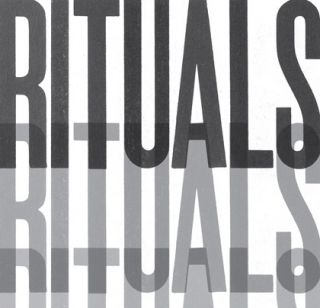Back when he was playing professional baseball, Nomar Garciaparra used to go through an elaborate ritual every time he would step up to the plate. Here’s how the L.A. Times described his pre-batting routine back in 2006: “Adjust red arm band on right arm. Tap home plate with bat. Then, quickly touch helmet bill, end of bat, then back to helmet bill…While balancing his bat on his right shoulder, he yanks his batting glove with his left hand. Then, the right hand crosses over his left and it tugs on the left-hand glove. Repeat four times at least.” I used to go through a similar process in Little League, but I’d repeat it only twice, which is obviously why I was such a poor batter. My guess, though, is that you don’t have to play baseball to identify with this sort of behavior.

Why do we engage in these types of rituals? If you ask people, you often get answers that are less than satisfying. Nomar, for example, told a journalist that this wasn’t anything “superstitious” nor was it a “ritual.” Rather, he maintained that he went through all of those motions just to make sure everything was tight, from his gloves to his helmet.
If we really start thinking deeply about rituals, however, it seems that there are at least three different occasions (and reasons) why we go through with them. First, a recent paper suggests that rituals such as knocking on wood help people feel as if they’ve eschewed potential bad luck after tempting fate. In one clever experiment, Jane Risen and colleagues had a group of people act out a conversation in which they deliberately tempted fate by saying something along the lines of “there’s no way I or anyone I know will get into a car accident this winter in Chicago.” Some of them were then told to clear their thoughts by knocking down on the table in front of them five times. This, of course, is akin to “knocking on wood” and pushing something away from the self. In a control condition, however, another group performed a different action in which they didn’t physically push something away: they instead knocked up on the table’s underside. People who tempted fate and then knocked up felt that the likelihood of getting into a car crash that winter was quite high. Those who tempted fate and then knocked down on the table, on the other hand, felt the probability was much lower. In follow-up studies, Risen and colleagues found that the reason we go through rituals like knocking on wood when we’ve tempted fate is that the act of literally pushing something away from ourselves serves as a simulation for physically pushing away a potentially bad outcome. And in our minds, that act of pushing this bad thing away makes the event seem less vivid, which seemingly lowers the chances of it occurring.
But we don’t just go through rituals to prevent something negative from happening; we also do them when a bad thing has occurred. Jews sit Shiva when someone has died and people regularly pray after national tragedies. Mike Norton and Francesca Gino propose that we do these things as a way to regain a sense of control and diminish negative feelings after our worlds have been shaken up. In one study they conducted, people wrote about a relationship ending or the death of a loved one. Half of the participants then wrote about a ritual that they undertook after the loss (e.g., “I washed my [deceased] friend’s car every week, as he used to do”). People who had written about a ritual not only reported a higher feeling of control, but they also felt less grief regarding their loss. Of course, this study was retrospective and contained a lot of variability in terms of the types of losses that people reported. So as a follow-up, Norton and Gino actually induced a loss in the lab. They told a gathering of people that they would be partaking in a lottery and that one of them would win $200. After this, they handed one research participant the $200 and sent him or her on their way. Some of the lottery losers were then instructed to engage in a ritual in which they drew how they felt on a piece of paper, sprinkled some salt on the page, tore up the sheet, and then counted to ten in their heads five times. Another group of lottery losers were simply instructed to spend a few minutes drawing how they felt. In line with the first study, the people who engaged in the ritual felt a stronger sense of control over their worlds and also reported lower levels of grief regarding the lottery loss. So, going through with some sort of ritualistic behavior can help restore feelings of control, the same feelings that are disrupted by a loss in the first place.
Let’s not end on such a dark note, though. Kathleen Vohs, Yajin Wang, Gino, and Norton recently looked at rituals that are performed at positive occasions and found that they can help to heighten a consumption experience. Think about eating a meal. Sometimes we just sit down and plow through it (maybe we’re watching Breaking Bad, an hour goes by, and we have no idea what we just ate). However, at other times, like holidays, we stop and go through with a ritual – we might make a toast, say a prayer, or take a minute to reflect. Does doing this change the experience of eating? In short, the answer is yes. Vohs and her co-authors had people eat a chocolate, but beforehand go through with a little ritual (breaking the chocolate in half, unwrapping one part, eating it, and then eating the second part) or not. Those who had done the ritual were actually willing to pay extra for the chocolate and they found it more flavorful. In another study, the researchers found that ritual-goers were subsequently more likely to feel a sense of intrinsic interest in the chocolate-eating experience. In positive domains, then, rituals lead to heightened consumption because they increase our involvement with the experience itself.
The rituals performed in these three studies are all in response to specific events. I suspect, though, that there are rituals that can be thought of in a broader way. Watching college football with a cosmo in hand every Saturday in the Fall (if you're my father-in-law) or going to see the Nutcracker each December, for example, are the types of rituals we might simply do from one year to the next without being prompted. But by helping to draw a straight line from the past to the present to the future, they might do just as good of a job helping us feel a sense of comfort and control over our lives.


